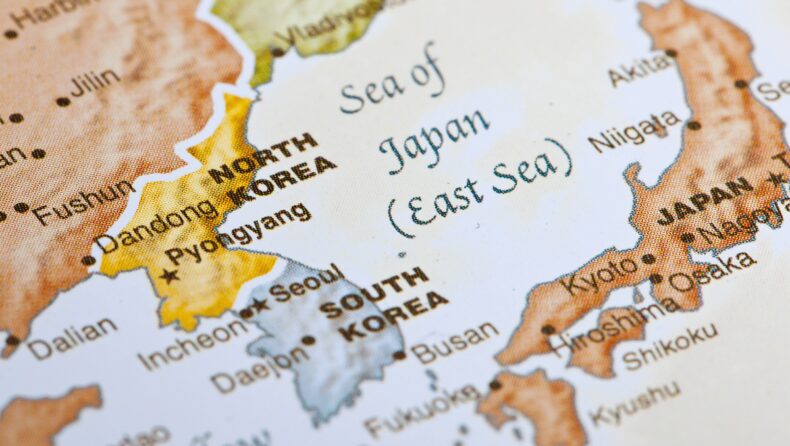North Korean leader Kim Jong Un has instructed the military to increase the intensity of its drills to prevent and react to a potential “real war”. The statement comes after a fire-assault drill that was overseen by the North Korean dictator.
According to South Korea’s military, North Korea fired a short-range ballistic missile off its coast on March 9, 2024. It added that it was analysing the possibility that multiple missiles were launched from the same area.

North Korea’s KCNA news agency released photos of at least six missiles being launched at the same time. It also stated that a “powerful volley at targeted waters” was fired by a unit specially trained for “strike missions” and it showcased its capability to “counter an actual war”. According to KCNA, Kim Jong Un emphasised the need for the fire assault sub-units to be thoroughly prepared to carry out their two strategic missions: to deter war and to take the initiative in war. He instructed them to steadily increase their various simulated drills for a potential real war in order to achieve the highest level of proficiency.
NORTH KOREA AND SOUTH KOREA
North Korea and South Korea are two countries with a complex relationship that dates back to the end of World War II, when the peninsula was divided into two separate states. The division was the result of the Allied Powers’ decision to divide the country into two occupation zones along the 38th parallel, with the Soviet Union controlling the north and the United States controlling the south.

The relationship between the two countries was strained from the beginning, and tensions escalated in 1950 with the start of the Korean War. The conflict ended in 1953 with a ceasefire agreement, but no peace treaty was ever signed, leaving the two countries technically still at war.
Since then, the relationship between North Korea and South Korea has been characterized by periods of relative calm as well as increased tension. There have been several military clashes between the two countries over the years, and North Korea’s nuclear weapons programme has added a new layer of complexity to the relationship.
WHAT IS A BALLISTIC MISSILE?
A ballistic missile is a weapon that is designed to travel through the atmosphere and hit a target using the force of gravity. It follows a trajectory that is initially powered by rocket engines and then follows a ballistic path once the engines are shut off. Ballistic missiles can carry conventional or nuclear warheads, and they can be launched from land, sea, or air platforms.

Image Source: KCNA-AFP-Getty Images
They are considered a significant threat to global security, as they can be used to deliver a devastating attack on a target located far away from the launch site. The development and deployment of ballistic missiles are regulated by international treaties, such as the Missile Technology Control Regime, which aims to prevent the proliferation of missile technology and their use for military purposes.
ROLE OF THE US
The missile launches came ahead of large-scale joint military exercises to be conducted next week by the United States and South Korea. The exercises, known as Freedom Shield Drills, are designed to improve military readiness and interoperability among the participating countries, and to deter potential adversaries from taking aggressive actions in the region. The exercises typically involve various scenarios, including defensive operations against missile attacks, maritime interdiction, and amphibious assaults. The drills have drawn criticism from North Korea, which views them as a rehearsal for invasion and a threat to its national security.

Earlier this week, Kim Yo Jong, sister to the Supreme Leader, had said that the shooting down of any of North Korea’s test missiles would be treated as a declaration of war. She also blamed the joint military exercises being conducted by South Korea and the United States for the growing tensions in the region.
The US Indo-Pacific Command issues a statement saying that except for having a destabilising effect on the geopolitics of the region, the latest launch posed no real danger to the US or its allies.
The United States will hold a meeting of the UNSC members next week on the human rights violations in North Korea, a move that will likely draw anger from Pyongyang. The 15-member Security Council has discussed human rights in North Korea on multiple occasions since 2014. The country has also been under UN sanctions since 2006 over its missile and nuclear programmes.














